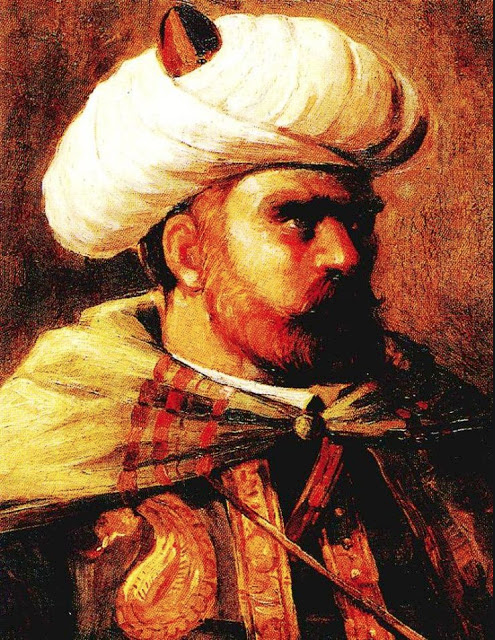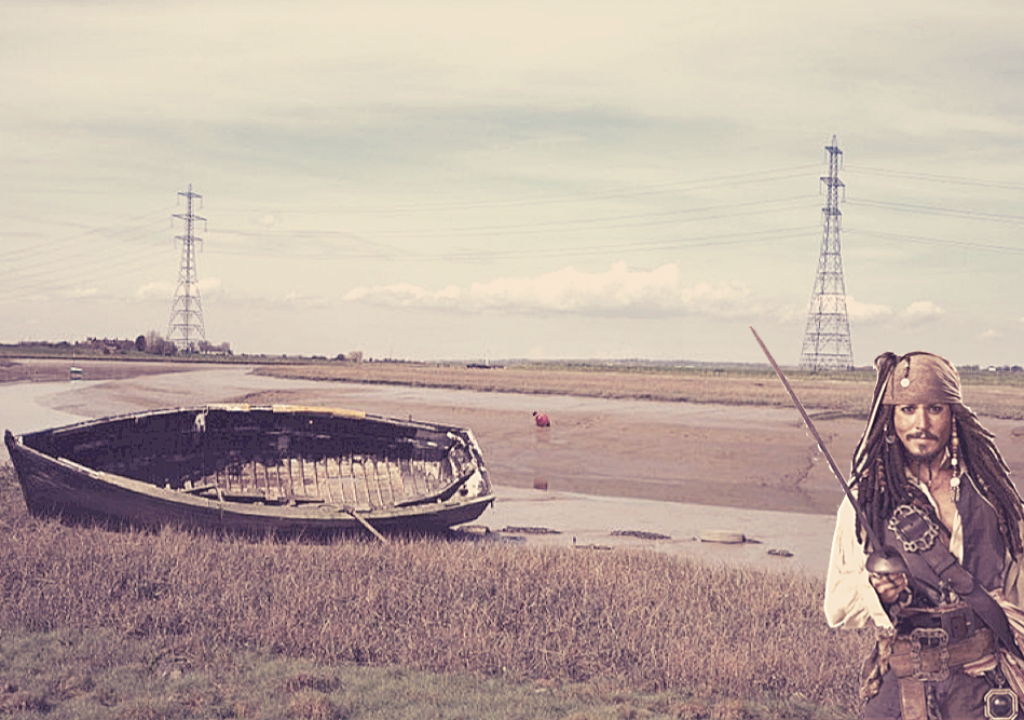Did you know that the fictional pirate Captain Jack Sparrow was actually based on a real life Faversham pirate?
We kid you not, the trickster captain of the Black Pearl in the massive “Pirates of the Caribbean” film franchise was based on a local Faversham man named John (Jack) Ward.
Jack Ward was born c1553 in Faversham, to an impoverished family. Much of his life was spent working in the local fisheries. He was known locally as an out-and-out wastrel who spent much of his time getting drunk, he would “sit melancholy, speak doggedly … [and] repine at other men’s good fortunes”.

In 1588 Ward found work as a privateer, plundering the Spanish Fleet under licence from Queen Elizabeth I following the Spanish Armada’s failure to invade England.
Following King James I coming to the English throne, the war with Spain ended and these licences were revoked. However, for Jack and his fellow privateers the rewards had been so large, they refused to give up their livelihoods and continued to plunder Spanish ships. As such they were considered pirates.
Around 1604, Jack Ward was believed to have been pressed into service aboard a ship named the Lyon’s Whelp. He wasn’t there long however, as Ward and his colleagues quickly deserted and stole a small 25-ton ship from Portsmouth. Ward’s comrades elected him Captain and they sailed to the Isle of Wight and captured another ship named the Violet. And so it came about that Jack and the crew no longer just targeted Spanish ships, now any ships were fair game.
Over the next few years Ward and his crew captured a great many ships, and fitted them out as war ships. He headed to Tunis which he hoped to make his base.
Tunis was nominally ruled by a pasha appointed by the Ottoman Sultan in Istanbul but, by the time Ward arrived in 1605, the real power lay in the hands of Uthman Dey, leader of the janissary soldiers (janissaries being the Sultan’s household troops and bodyguards) garrisoned in the city. Wily and ruthless in equal measure, Uthman Dey had created a powerful guild of corsairs, and they preyed on shipping across the Mediterranean. Dey recognised that Ward was a skilled pirate and allowed him to use Tunis as his centre of operations, just so long as he got a share of the loot.
Ward so ingratiated himself with Uthman Dey that he was given a large plot of land in Tunis, where set to work building himself a mansion on a scale and opulence that would have been unthinkable in his native England. One compatriot who visited the place described it as “a very stately house, far more fit for a prince than a pirate”.
From Tunis Ward built a fearsome reputation and went on to capture many vessels from various European States. In the spring of 1607 Ward took a fleet of four ships and spotted a large Venetian ship named Reniera e Soderina and, after a three hour fire fight, the ship was surrendered to Ward and his men with an alleged haul of £2m. This led to rumours in London that the Venetian authorities were close to declaring war on England if Ward was not stopped. The English Ambassador in Venice assured the council Ward would “meet with a warm reception if he comes into these waters”
Eventually, Jack Ward asked to be pardoned by James I of England, this was rejected and he reluctantly had to be given a safe haven in Tunis. Jack and his entire crew then converted to Islam and Ward was renamed Yusuf Reis, yet was more commonly known as Captain Yusuf Asfur (Captain Jack Sparrow) due to Jack’s fascination with the small birds in Tunis.
So there you have it, the inspiration behind one of the of the most well known pirates to appear on film, and arguably, one of actor Jonny Depp’s best know characters was based on a local Faversham lad!




